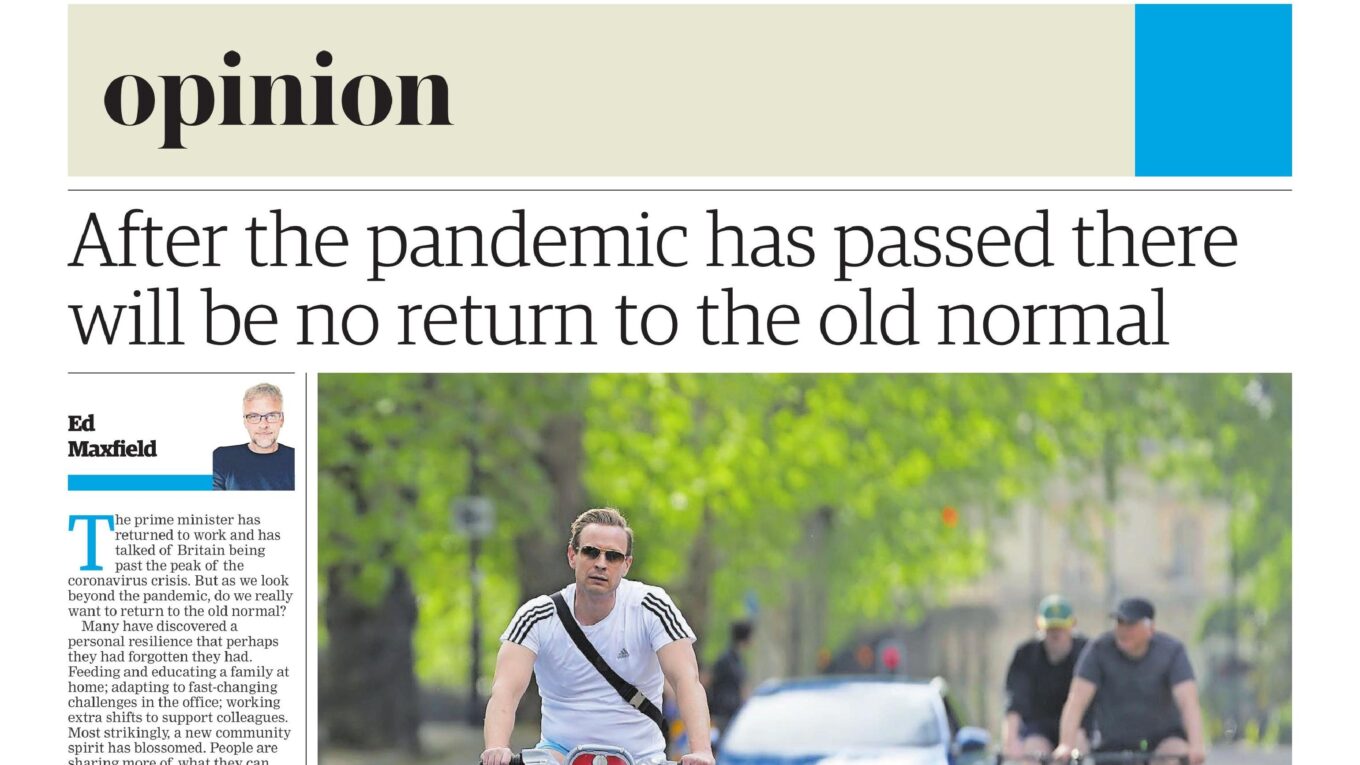A couple of weeks ago I wrote an optimistic article for the EDP about how a modern Blitz Spirit could give rise to a new era of voluntary action in our communities. I’ll admit my confidence has been knocked by the Government starting to behave like a bunch of black-market spivs flogging knocked-off nylons but I’m not quite ready to give up on my optimism.
Talking about an idea is one thing, though. Turning it into sustained action is another challenge entirely. A staggering ten million people have responded to the CoronaVirus Pandemic by volunteering. People like my incredible colleagues Tim Adams and Wendy Fredericks who have given huge amounts of time, with the support of dozens of residents to help run organisations like Cromer Cares and Mundesley Cares. Many of those people will continue volunteering long after the Pandemic is over (just as they did before it hit) but how do we keep that energy going to support communities into the future?
Vidhya Alakeson and Will Brett offer some thoughts but their suggestions are focused on central government action which, as I say, appears to have a different set of priorities right now. To really make change happen we need action closer to home.
First and most importantly we need those people who have already stepped forward to recognise the power of what they have done. I’d urge them all to take a few moments to think about how they can enable the people they have worked with to sustain community activism into the future. Don’t wait for permission. Don’t wait for funding. Don’t wait to be told what to do. Everyone who has volunteered in the last few weeks is a leader with the power to change lives. Keep coming together, talk to each other, challenge existing power, take action.
Secondly, local councils need to break away from the minutiae of statutory service delivery and get back to the basic question of why they exist. Look at their communities as a whole and take on Big Challenges as a way of helping places to grow. Great Yarmouth offers a great example with the Neighbourhoods That Work programme supported by the Borough Council and Voluntary Norfolk. The great challenge for GYBC now is how to sustain that programme into the future and build its principles into everything they do.
And public services need to put real effort and resource into involving communities in what they do. I’m fond of pointing out that the annual budget for NHS England is bigger than the whole economy of the Republic of Serbia. Steering the organisation towards meaningful community engagement is hard. It demands commitment and flexibility, accountability and transparency. Not characteristics that NHS management is widely known for. I was lucky enough to be involved in a small way in the redesign of Children and Young People’s Mental Health in Norfolk. It gave me the chance to suggest ways that commissioners could make it easier for smaller charities to get funds to deliver services and to grow them if they work. It doesn’t need legislation, we already have the Social Value Act, it just needs the people in charge to decide it is a thing they want to do.
Now, my second and third points there are asking institutions to do things for us. They won’t unless we demand it of them and they are shown the value of doing it. So if you care about your neighbourhood; or care whether local food producers and high street businesses are getting a fair deal; or care whether health, care and education services are working effectively for your community, make sure the people with power know about it. Use your voice to make a noise. Encourage others to do the same. Don’t leave it to the guy at the top because he might be more interested in what he can get from selling stockings. If you do nothing else, find a thing you really care about and volunteer whatever you have to spare – time, knowledge, money – to help it.

